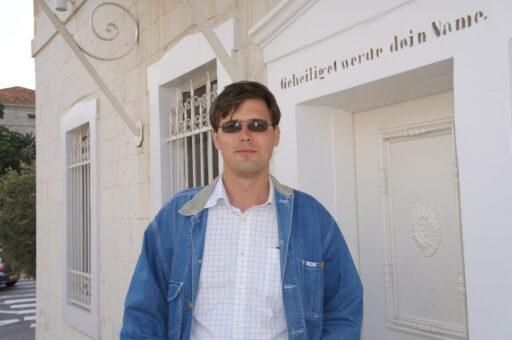Yad Vashem, Jerusalem

Yurii Radchenko (Ukraine), Lector, Kharkiv Collegium, “Ukrainian Hilfspolizei and the Holocaust in Ukraine: The Case of the Military Administration Zone”.
Yuri (Iurii) Radchenko is a Ph.D. Candidate for History. He studied for his MA at the Department of History of the Ukraine at the Kharkiv National University V.N. Karazin. His field of research includes history of the Holocaust, Ukrainian-Jewish relations, collaboration with Nazis in Eastern Europe, and the history of right radical movements in Europe, 1920-1940s. Yuri is a director of the NGO Center for Research of Inter-Ethnic relations in Eastern Europe and senior lector at the Institute of Oriental Studies and International Relations “Kharkiv Collegium”; among other institutions, he has worked for Yahad in Unum. Yuri is an author of several articles on the history of the Holocaust.
His current project “Ukrainian Hilfspolizei and the Holocaust in Ukraine: The Case of the Military Administration Zone” focuses on the activity of the Ukrainian Hilfspolizei in the Military Administration zone (Kharkiv, Chernigiv, Sumy, Stalino, Voroshylovograd oblasts) with regard to the murder of the Jews and to the plundering by Ukrainian policemen of Jewish property. It also investigates the motivations of those who joined the Ukrainian police in the Military Administration zone.
During his EHRI Fellowship, Yuri stayed at Yad Vashem in June and July 2013, where he consulted the many collections, for example with Soviet documents. He also used the Archive of the Bet Lochamei a Getaot for testimonies of people who have survived the Holocaust. He shared his ideas with prominent specialists from Yad Vashem (Davis Silberklang, Arkady Selzer) and visited the rich libraries of Yad Vashem, the Hebrew University and Tel Aviv University. Using documents from the Yad Vashem archives, Yuri prepared an article “Ukrainische Hilfspolize and the Holocaust on Chernigiv Region, 1941-1943” for the Russian language journal Forum for Contemporary East European History and Culture (published in October 2013). His EHRI Fellowship in Israel also gave him the possibility to prepare a paper for the International Conference “Holocaust: New Scholars-New Research”, hosted by the University of Toronto, and co-funded by the Canadian Government, IHRA and the University of Toronto (October 6-7, 2013).
